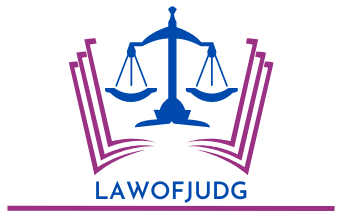- Confidentiality of Judicial Deliberations: Judges must be sworn to the highest commitment of securely maintaining confidentiality about the internal discussions within their conference rooms, thus the voices, debates, and outcomes of the judges remain private and safe from external impacts. This ensures the seats of the judges are safe, and not subjected to more powerful players or special interests.
- Protection of Judicial Records: Humanizing: Judicial records including case files, transcripts, and internal communications are to be stored in a highly confidential location. Production of the said type of access to such records is limited to authorized persons only; they are the only ones who have permission to disclose ones with abuse.
- Anonymity in Certain Proceedings: Where, in some situations, maintaining the anonymity of judges is preferred for returned cases of judges’ safety or preservation of the integrity of the judicial process, special provisions can be activated to postpone the displaying of the names of judges implicated. Thus, this guarantees the security of their persons and Article 14 of the Constitution, i.e., principles of fair trial and natural justice.
- Limited Disclosure of Financial Interests: However, transparency inevitably always occupies a high position in a judge’s integrity system. On the other hand, the disclosure of a judge’s financial interests should only be made to hinder a potential conflict of interest or personal bias in a judge’s rulings. The financial statements should have detailed disclosures managed with care level to prevent the judges’ data privacy, a situation that should be balanced with transparency.
- Protection from Unwarranted Surveillance: The judges may have the safety of their autonomy and impartiality compromised if they are subject to unjustified supervision or monitoring. The courts have been observed as a judicial body sworn under oath to protect the rule of law and justice. It should be given for safeguards to guarantee no one else except officials monitors conversations or conducts intrusive surveillance activities directed at judges.
- Respect for Personal Boundaries: The court judges have also the right to privacy both in their private lives and public offices free from too much scantly and unreasonable intrusion. The ones who are working with the judicial system should not undergo indisposed exposure of their private affairs, relations, and activities outside courts. Mainly because such type of attention is not due to them, they have a right to be treated as individuals.
- Balancing Privacy with Accountability: Privacy for judges is important while the need for accountability and transparency has to be not forgotten when the law is being administered. Mechanisms should be developed to ensure that the judiciary is not in any way seen as lacking confidence by safeguarding the privacy of information and that efforts to deal well with judicial misconduct and malfeasance would not be hindered in any way.
- Professional Integrity and Ethical Standards: The protection of privacy of judges as a method by Perse would be the way of keeping judges honest and educated in their ever-changing field. Judges’ actions transcend beyond the courtrooms, and they must be accountable for any public or private wrongdoings to uphold their personal and professional ethics and restore public confidence in the judicial system.
- Continuous Evaluation and Adaptation: The provisions covering the privacy of judges deserve a regular update and adjustments based on the revisions of societal trends, technology, and legal precedents. Adaptability and resilience are the key elements that grant the privacy rules that not only what is considered deliberate will be still relevant but also keep up with legal provisions that are oftentimes subject to changes.
- Public Education and Awareness: Attempt to inform the public on the reason for judges’ privacy laws and why the laws give protection to certain judges and journalists who may happen to report on court proceedings. Local citizens, through this broader understanding of judicial independence, begin demanding respect for the judiciary and privacy rights, resulting in a firmer judicial process.
The existence of these specific laws on privacy for judges comes to defend significantly the fundamental and non-negotiable principles of judicial independence, impartiality, and integrity, maintaining the core role of judges in the delivery of a fair and equal justice system.

